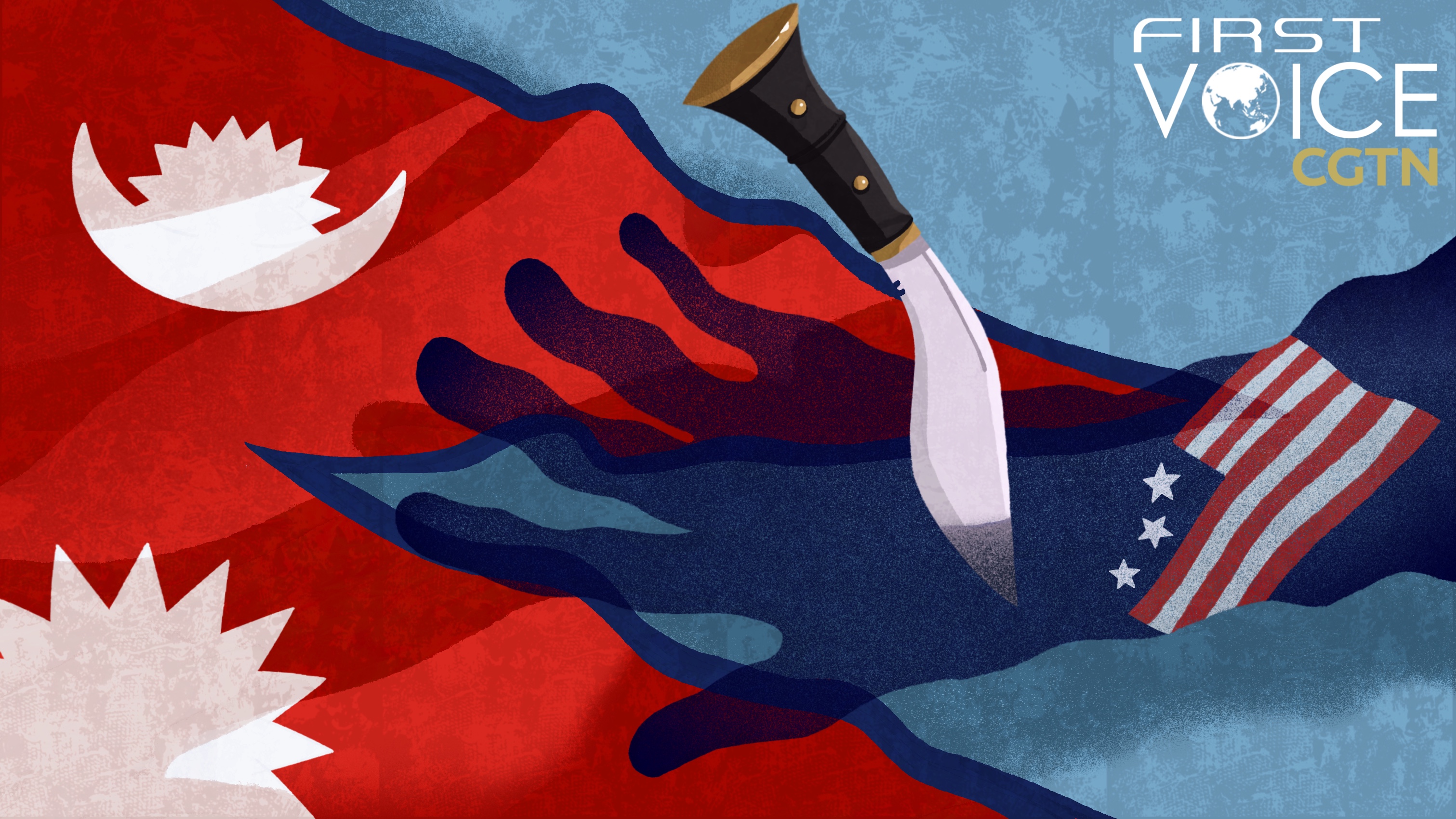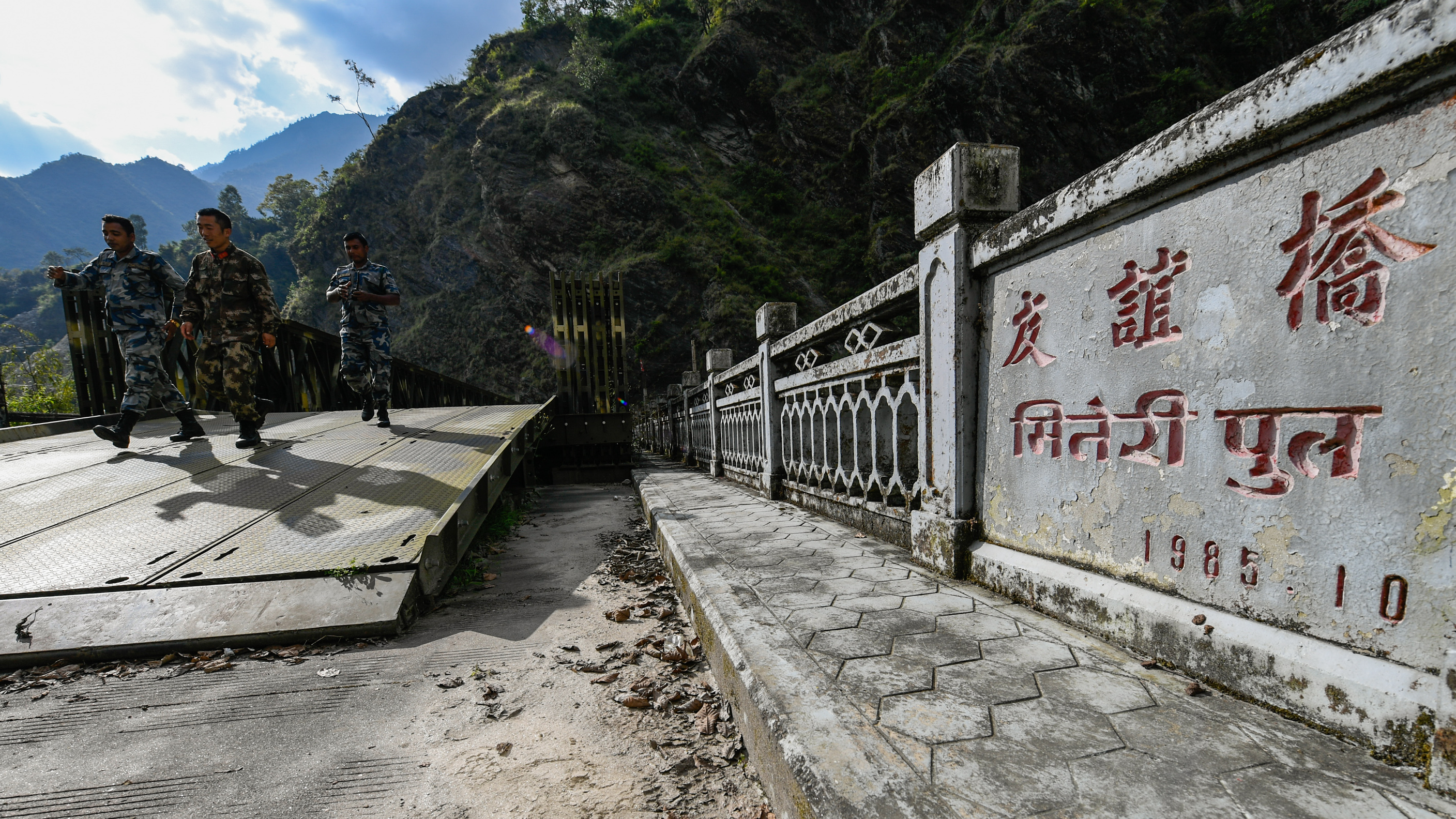
Nepal not moving ahead on the SPP with the U.S. saves the South Asia region from a turmoil, for now. /CGTN
Nepal not moving ahead on the SPP with the U.S. saves the South Asia region from a turmoil, for now. /CGTN
Editor's note: CGTN's First Voice provides instant commentary on breaking stories. The daily column clarifies simmering issues and better defines the news agenda, offering a Chinese perspective on the latest global events.
The United States' State Partnership Program (SPP) was founded in the 1990s to pair the National Guard in U.S.'s states with countries in the former Soviet Union's bloc. It is described as "a key U.S. security cooperation tool." The program has since been expanded beyond its initial mandate to include nations outside the former Soviet bloc. Earlier this week, the Nepalese cabinet decided to not join it.
The SPP is an insidious poison for anyone who swallows it. U.S. Embassy in Nepal's official description of SPP may present a peaceful veneer. The program is said for disaster mitigation effort, and that in the event of natural disasters, the U.S. "seeks to share and exchange the best practices and capabilities of our National Guards – our first-line responders." However, when it appears on the U.S. National Guards' website, SPP is described as a program through which the U.S. National Guards "conducts military-to-military engagement in support of defense security goals but also leverages whole-of-society relationships and capabilities to facilitate broader interagency and corollary engagements spanning military, government, economic and social spheres."
As The Diplomat put it, the SPP is a "multi-purpose vehicle to advance wide-ranging U.S. political and strategic objectives under the overall cloak of humanitarian engagement."
Even without the U.S.'s military interference, Nepal has always had a diplomatic fine line to walk. As a landlocked country sandwiched between China and India, the two largest continental Asian countries and the two fastest growing developing countries who have a complicated geopolitical relationship, Nepal has made herculean attempts to balance its relationship with both its neighbors.
It has a nearly $2 billion trade relations with China in 2021 that grew by 67 percent from 2020. More than two-thirds of its trade happens with India. To the north, Nepal borders China's Tibet Autonomous Region, one of China's most sensitive and strategically important region and linchpin to China's security in the southwest. To the South, Nepal's elevated altitude gives the country a position to overlook the Indo-Gangetic Plain and the subcontinent.

Chinese and Nepalese officers walk across the China-Nepal Friendship Bridge at Zham Pass, southwest China's Tibet Autonomous Region, October 29, 2017. /Xinhua
Chinese and Nepalese officers walk across the China-Nepal Friendship Bridge at Zham Pass, southwest China's Tibet Autonomous Region, October 29, 2017. /Xinhua
Nepal epitomizes the idea of a "delicate foreign policy position."
United States projecting its military strength into Nepal would undoubtedly unravel this fragile balance and dramatically intensify the geopolitical and security landscape in the region. If SPP was accepted, America was certain to build on it by gradually infusing more militaristic element into its relationship with Nepal in order to contain China. Regional interests and stability will not be served with the United States ramming itself in there.
The Nepalese themselves recognize this. According to the Kathmandu Post, politicians from both the current party in power and its main opposition have been warning against signing any military pact with the United States. According to The Diplomat, critics in Nepal believe signing the SPP would be "tantamount" to signing onto the U.S. Indo-Pacific Strategy. It would be "catastrophic" for China-Nepal relations while antagonizing the top brass in Indian military too.
When Chinese State Councilor and Foreign Minister Wang Yi visited Nepal in March this year, he stressed that China will "unswervingly pursue friendly policies towards Nepal" regardless of how the international landscape and domestic situations in both countries evolve. Chinese Foreign Ministry Spokesperson Wang Wenbin said in the regular press conference on June 23 that China commends Nepal's decision not to move ahead on the SPP with the U.S. and will continue supporting Nepal's independent and non-aligned foreign policy.
Nepal's independence and non-aligned foreign policy must be maintained. Trying to push SPP with Nepal is a clear sign that the United States seeks to step up its military engagement in the region and its increasingly militaristic policy towards China. This is dangerous. Letting Nepal fall under America's military influence could easily tip the balance of power in South Asia that could lead to political instability and potential military conflict between major powers in the region. The United States can't be allowed to mess around here.
(If you want to contribute and have specific expertise, please contact us at opinions@cgtn.com. Follow @thouse_opinions on Twitter to discover the latest commentaries in the CGTN Opinion Section.)

